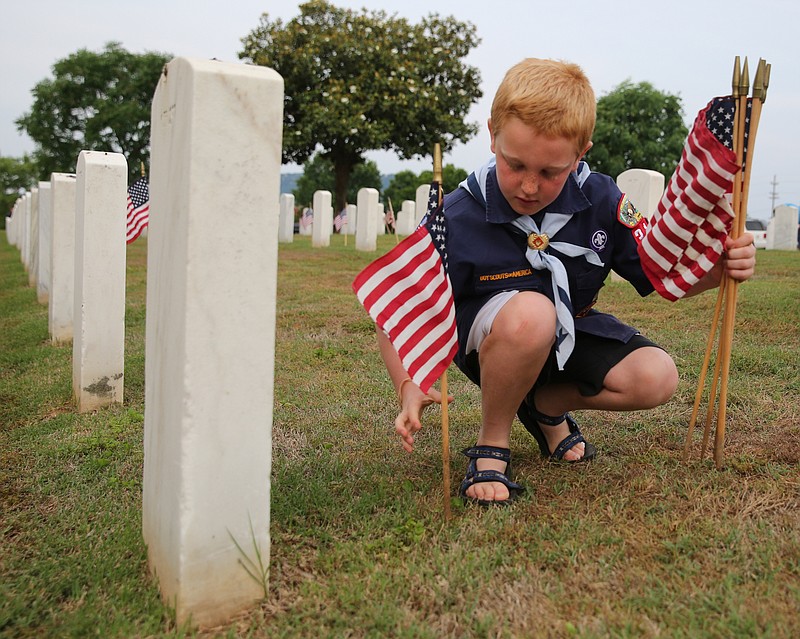With young children exposed to far too much sexualizing in today's world, the recent decision by Boy Scouts of America (BSA) to permit girls in 2018 only seems to add to the problem.
Even the organization's own words on the subject leave one confused.
"There is research," a Scouting newsroom release says, "that indicates boys and girls together at the Cub Scout age [6-10] in a nurturing environment have more benefits than single gender. At the same time, there is research that shows strong single-gender benefits [as opposed to boys and girls being together]."
So why change?
The party line for the move, though, is one of practicality.
"Families today are busier and more diverse than ever," BSA's statement read. "Most are dual-earners and there are more single-parent households than ever before, making convenient programs that serve the whole family more appealing,"
So convenience for the family outranks the importance of the experience for the individual Scout? That, in itself, may be telling.
BSA denies it, but falling enrollment numbers almost certainly played a part in the move. Membership peaked at 6.5 million members in 1972 and fell to 2.8 million by 2012. After announcing in the last few years it would permit gay Scouts (2013) and gay leaders (2015), membership fell to 2.3 million in 2016. In January, it said it would allow transgender participants.
"The BSA has experienced renewed interest in Scouting," it said - we believe defensively - in the Scouting newsroom release, "and we believe that is largely in response to program innovation and a more thorough understanding of what families want and need when it comes to extracurricular activities."
The structure for including girls seems confusing to us, too.
Beginning in 2018, dens (groups of six to eight Cub Scouts that meet approximately weekly) will be "all boys or all girls." However, packs (groups of Cub Scout dens that meet approximately monthly) can add girls or remain all boys. New packs can be all boys, all girls or coed.
While the character and values taught in each den will remain the same, we can imagine that pack meetings with boys' and girls' dens will have gatherings in which the dens have little in common. While the boys dens have been creating Popsicle stick bows and arrows, marshmallow shooters and rocket launchers, the girls' dens have been crafting paper doll clothes designs, flower badges and necklaces.
We also foresee a time when some of the activities Scouts have done for years are changed, narrowed or rejiggered to make them more palatable for girls. And as time moves forward, we also wonder if changes in subject matter - and the pressure that brings those to bear - won't start creeping in to accommodate interests that have traditionally been thought to be those of girls.
We aren't so Neanderthal to believe that each sex can't enjoy the other's activities to some degree, but boys and girls already are thrown together in schools, some sports, after-cares, Sunday schools and vacation Bible schools. Shouldn't there be a time in which boys can enjoy the company - and play - of only other boys? And, in doing so, develop self-confidence, maturity and self-awareness?
The decision didn't sit very well with the Girl Scouts of the USA, either.
"The need for female leadership has never been clearer or more urgent than it is today," the 1.8 million-member organization said in a statement, "and only Girl Scouts has the expertise to give girls and young women the tools they need for success."
The group's criticism later got a little more pointed.
"The Boy Scouts' house is on fire," the organization told ABC News in a statement. "Instead of addressing systemic issues of continuing sexual assault, financial mismanagement and deficient programming, BSA's senior management wants to add an accelerant to the house fire by recruiting girls."
Both groups emphasize teamwork, leadership, character and values. Both have outdoor components and similar structures. If there is something missing in either of them, it would have made more sense to correct the problem rather than erase what has been successful for 107 years.
And while the decision seems to be the opposite of what feminism has preached for nearly 50 years - that girls and women should stand on their own for the individuals they are - some who have been pushing the issue say BSA has been discriminatory in not allowing girls.
Of course, this is from the same crowd that says masculinity is toxic and men should be devalued. So we won't be surprised if that kind of thinking begins to permeate the BSA.
We're not ready to give up on an organization that has helped mold men for generations, but we think this is a dangerous course.
